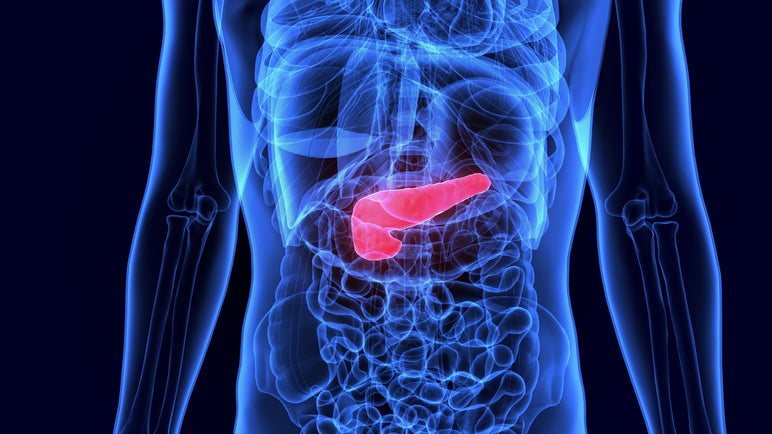Getting Quality Sleep: 9 Best Natural Sleep Aids
Between stress, an ever-growing to-do list, and, let’s face it, too much late-afternoon caffeine, getting a good night’s sleep can be a challenge. Up to 60% of Americans report issues on sleep, including the ability to both fall asleep and stay asleep. Less than two-thirds receive the seven to nine hours per night adults need to feel their best.
How Much Sleep Do You Need?
According to the National Sleep Foundation, the answer to that question varies by age. People 65 years and older can get by on seven to eight hours per night. Adults 18 to 64 years old need seven to nine hours.
In many cases, people are getting the recommended amount of sleep, but their sleep isn’t deep enough to feel refreshed in the morning. The National Sleep Foundation’s Sleep Health Index™ found that 20% of Americans complained that they did not feel refreshed upon awakening on any given day of the past week, even after slumbering for about 7 ½ hours.1 In addition, 35% of Americans reported “poor” or “only fair” sleep quality.1
Are You Getting Quality Sleep?
A minimum of 20% of nighttime sleep should be in deep sleep cycles in which brain waves are slowest in frequency—a key time to replenish and restore metabolic systems, recover immune system function, and strengthen central nervous system function and performance.
Insufficient deep sleep may reduce a responsive and protective immune response, and decrease cognitive attention, clarity, and memory. Hormonal changes may take place, which can drive appetite for high-calorie foods and can contribute to insulin resistance and progression to chronic health issues.
Here are a few indications of not getting enough deep sleep:
- Feeling unrefreshed and drowsy
- Reduced alertness and attention
- Trouble learning and forming new memories
- Cravings for high-calorie food
- Recurrent and frequent infections
- Feelings of sluggishness and low energy
The Consequences of Not Getting Enough Sleep
Sleep deprivation can lead to serious health risks. Not only does drowsy driving increase your chance of having a car accident, lack of sleep can also make you more susceptible to a number of health concerns.
Here are some of the health areas linked to getting the recommended amount of sleep:
- Weight management: Getting more sleep leads to a reduced desire to eat sugar, fats, and carbohydrates.2 There’s also a significant link between short sleep duration and the likelihood of being obese.3
- Cardiovascular health: Getting enough sleep is important for a healthy heart. Restful sleep maintains the lining of blood vessels known as the endothelium.4 In heart patients, short sleep duration is associated with a greater likelihood of being readmitted to the hospital again six months after discharge.5 Getting enough sleep also supports healthy blood pressure levels.6
- Bone health: Sleeping seven or more hours per night is associated with a healthier bone mineral density in women.7
- Immunity: Short sleep duration can affect respiratory health.8 Furthermore, not getting enough sleep leads to shortened protective telomeres in immune cells.9
- Memory: Researchers have found that even mild partial sleep deprivation (only one hour less than optimal) can lead to reduced working memory.10 Remembering phone numbers or directions, writing an essay, or remembering the rules of a new game are examples of working memory.
- Women’s health: One study showed that women who sleep less than six hours per night had a greater likelihood of having abnormal menstrual cycles, either too short or too long.11
- Mood: Getting enough sleep is a natural mood booster. Sleep supports a healthy inflammatory response, which is necessary for a good mood and a sense of well-being.12
- Smooth skin: Sleep loss raises cortisol levels. When exposed to high levels of this stress hormone, collagen in skin can break apart.13 This leads to wrinkles.
Best Supplements for Sleep
A number of dietary supplements can support sleep quality and duration for deep and restorative sleep. Here are some of the most effective and well-researched options:
Melatonin
Melatonin is a hormone produced naturally in the body after exposure to darkness. Numerous studies have shown supplementation with melatonin can support healthy sleep. Melatonin plays a role in the sleep-wake cycle, promoting and balancing sleep and inhibiting wake-promoting signals.* This sleep supplement can normalize circadian rhythms so that people who have a hard time falling asleep at night and awakening in the morning can receive more rest.14 Melatonin also helps balance stress and cortisol response and provides restoration and recovery of body systems and reduction of inflammatory responses.15*
While melatonin can help people fall asleep, it has limited capacity to support staying asleep. This can be alleviated by combining melatonin with ashwagandha.
Ashwagandha
Ashwagandha has been shown to reduce occasional anxiety and stress, allowing the body to settle down and prepare for sleep.* Ashwagandha also helps to maintain normal cortisol-related stress levels to support staying asleep longer, thus supporting the deep sleep helpful for resiliency.*
L-Theanine
Research shows that people can sleep better after consuming supplements containing this relaxing amino acid found in green tea.16,17 L-theanine promotes relaxation and calming responses through formation of alpha brain waves important for deep sleep.18*
5-HTP
5-HTP is produced from the amino acid tryptophan, ultimately yielding serotonin. This metabolic pathway supports the functional responses and modulation of CNS function, sleep, and positive mood.*
Saffron extract
Saffron may be an effective sleep aid that provides support for sleep quality, sleep latency (time it takes to fall asleep), and daytime dysfunction.* It influences central nervous system neurotransmitter balance as well as stress hormone balance and functional systems for healthy mood response—all important to facilitate deep and restorative sleep function.*
Lemon balm
Lemon balm (Melissa officinalis) is a popular plant with nutritional properties including its use for supporting quality sleep.* Lemon balm extracts support central nervous system function and signaling that can help balance calming responses for longer sleep and recovery.19*
Passionflower extract
Passionflower is an herb known for its gentle, calming properties, and its extract has been used to reduce occasional anxiousness and support quality sleep.*
Valerian root
Studies show this botanical supplement supports refreshing sleep.20,21 Valerian is especially effective as a sleep supplement when combined with other botanicals, specifically lemon balm, hops, and passionflower.22,23
Magnesium
Magnesium supplementation may help manage age-related sleep changes.24 In addition, research has shown magnesium may support healthy sleep in people with restless legs.25
Considering taking a supplement to help you fall asleep faster, stay asleep longer, and wake up feeling more refreshed? Talk to your healthcare practitioner for a recommendation to suit your specific needs.
References
1. National Sleep Foundation. https://www.sleepfoundation.org/how-sleep-works/sleep-facts-statistics. Accessed January 15, 2024.
2. Al Khatib HK et al. Am J Clin Nutr. 2018;107(1):43–53.
3. Wu Y et al. Sleep Med. 2014;15(12):1456-1462.
4. Calvin AD et al. J Am Heart Assoc. 2014;3(6):e001143.
5. Romero EK. Psychosom Med. 2020;82(1):57-63.
6. Glazer Baron K et al. J Clin Sleep Med. 2019;15(11):1587-1597.
7. Ochs-Balcom HM et al. J Bone Miner Res. 2020;35(2):261-268.
8. Prather AA et al. Sleep. 2015;38(9):1353–1359.
9. Prather AA et al. Brain Behav Immun. 2015;47:155-162.
10. Santisteban JA et al. Sleep Health. 2019;5(1):101-108.
11. Lim AJR et al. PLoS One. 2016;11(11):e0167048.
12. Cho HJ et al. Transl Psychiatry. 2016;6(3):e750.
13. Chen Y et al. Inflamm Allergy Drug Targets. 2014;13(3):177–190.
14. Sletten TL et al. PLoS Med. 2018;15(6):e1002587.
15. Lemoine P et al. J Sleep Res. 2007;16(4):372-380.
16. Lyon MR et al. Altern Med Rev. 2011;16(4):348-354.
17. Hidese S et al. Acta Neuropsychiatr. 2017;29(2):72-79.
18. Kimura R et al. Chem Pharm Bull. 1986;34(7):3053-3057.
19.Ramanauskiene K et al. Oxid Med Cell Longev. 2016;2016:1564257.
20. Taavoni S et al. Menopause. 2011;18(9):951-955.
21. Mineo L et al. Neuropsychobiology. 2017;75(1):46-51.
22. Taavoni S et al. Complement Ther Clin Pract. 2013;19(4):193-196.
23. Maroo N et al. Indian J Pharmacol. 2013;45(1):34–39.
24. Held K et al. Pharmacopsychiatry. 2002;35(4):135-143.
25. Hornyak M et al. Sleep. 1998;21(5):501-505.






